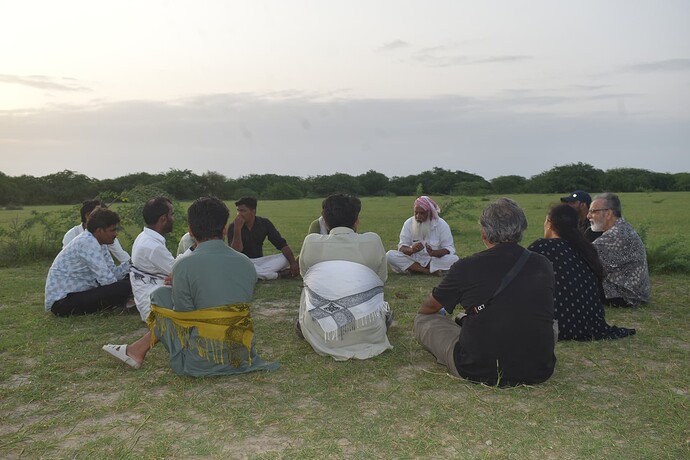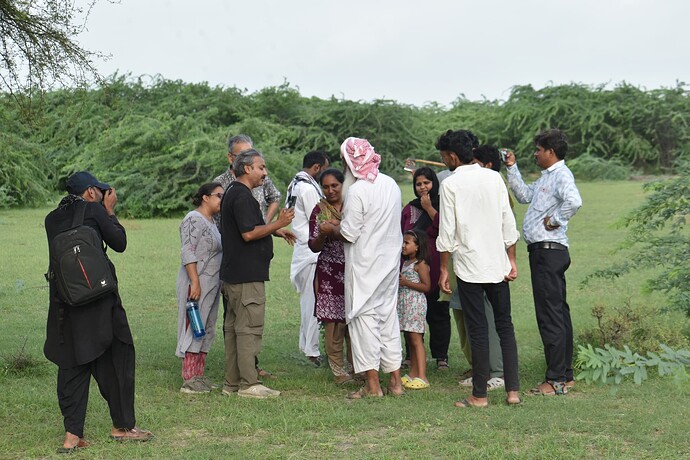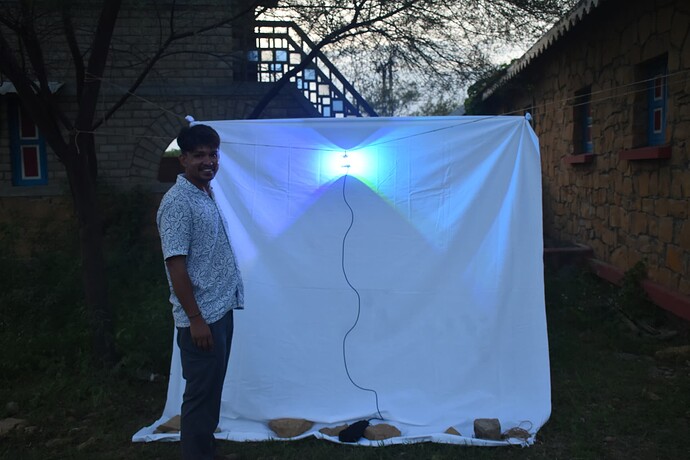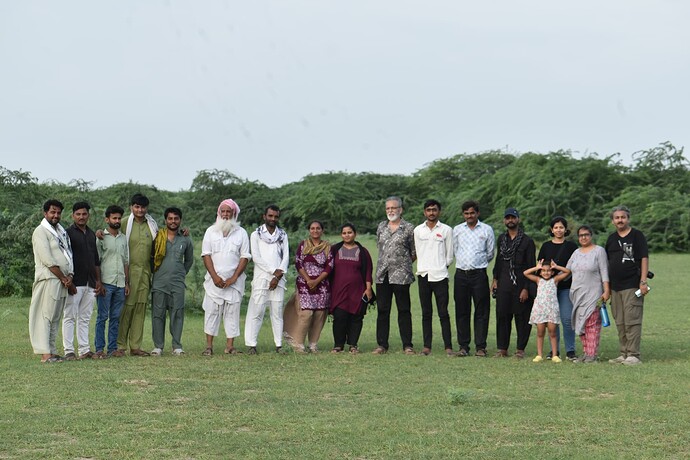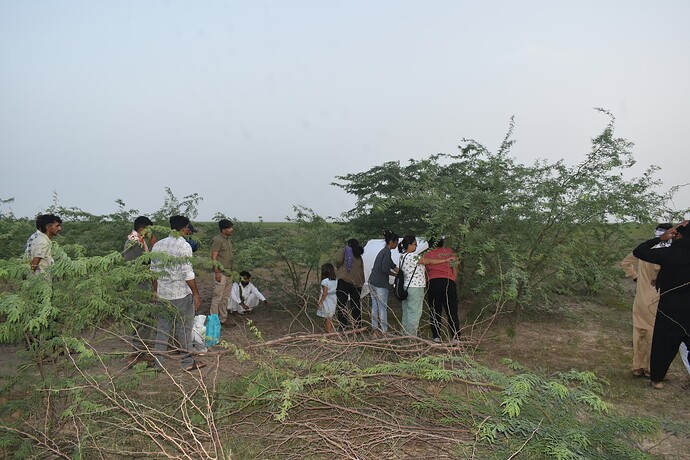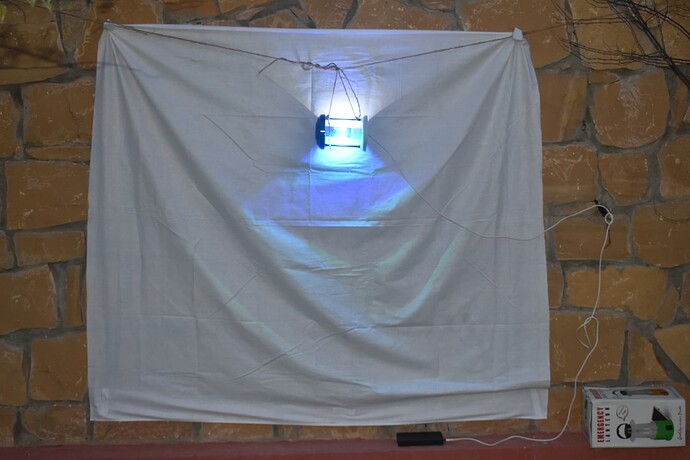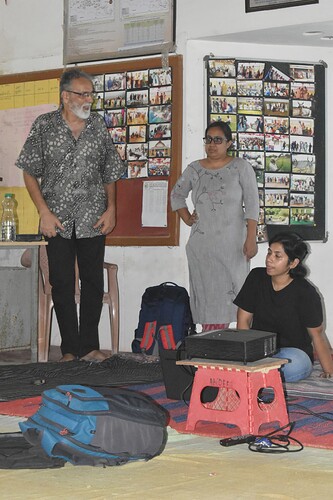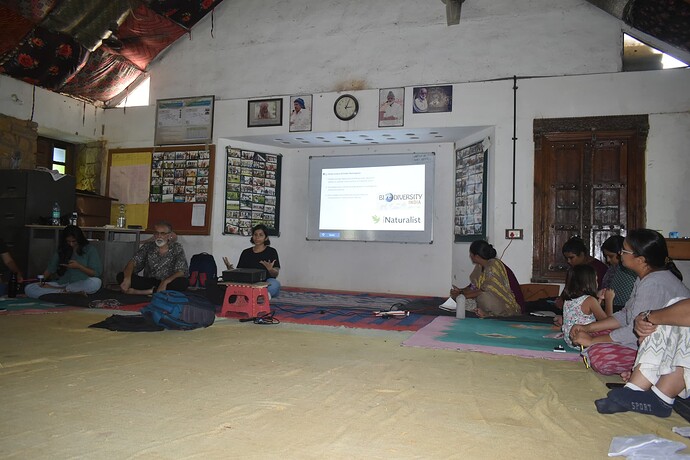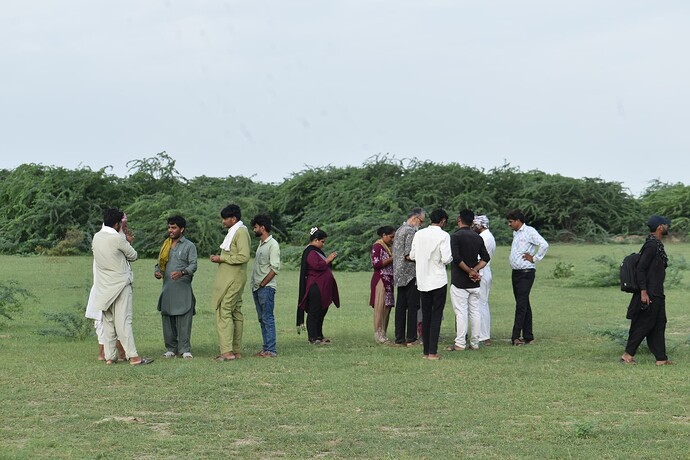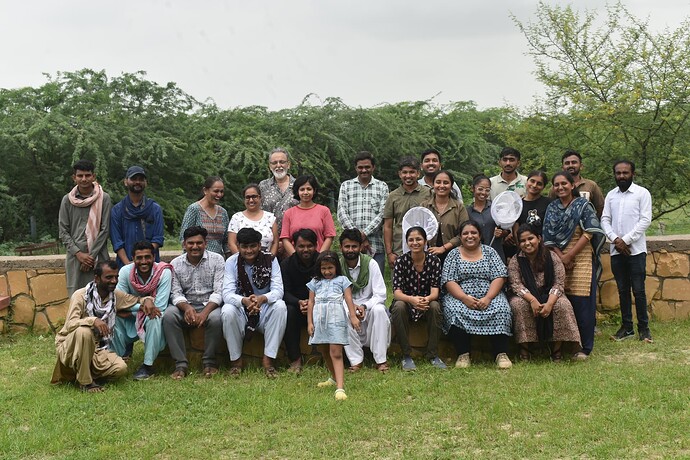Banni Grasslands, Gujarat | July 2025
Last week, as the desert sun dipped below the horizon and stars blinked awake, a new kind of spotlight illuminated the Banni Grasslands. From July 24th to 26th, the RAMBLE Field Station became a vibrant hub of life—not from any machines or neon signs, but from moths, beetles, and the quiet excitement of curious people eager to meet them.
A Gathering of Curious Minds
The occasion was a three-day, hands-on workshop on insect identification and citizen science, organized by Sahjeevan, the grassroots conservation group based in Bhuj. Timed to coincide with National Moth Week (July 19–27), the event brought together 35 keen participants—many of them local youth from the Kachchh and Saurashtra regions, alumni of the “Salim Node Certificate Course on Pastoral Ecology”. Armed with torches and budding curiosity, they stepped into the world of insects.
Observing Across Landscapes
Insects were documented across three distinct locations during the workshop:
- The RAMBLE Field Station campus,
- A nearby Virda (a traditional water harvesting site), and
- Surrounding seasonal wetlands within the Banni landscape.
Participants engaged in non-invasive sampling methods, including light trapping, umbrella trapping, and transect surveys. These approaches allowed them to observe insects respectfully—minimizing harm while maximizing learning.
Guides Through the Microscopic World
Two of India’s leading insect scientists—Dr. Tanvi Deora from Shiv Nadar University and Dr. Pritha Dey from NCBS Bangalore—served as guides on this journey through Banni’s rich, often overlooked insect life. Their quiet authority and infectious enthusiasm opened up new worlds: taxonomy, the vital roles insects play in ecosystems, and the ways citizen science links local observations to global knowledge.
Insects, often dismissed as pests or mere background noise, took center stage—as pollinators, decomposers, and the unsung heroes sustaining biodiversity. The group learned how to classify insects up to the family level, scrutinizing delicate wing patterns, feathery antennae, and body segments, set against the distinctive Banni flora.
Discovery, Done Gently
A cornerstone of the workshop was its gentle approach. Participants used non-invasive methods—especially light trapping—to observe nocturnal insects without harm. As dusk faded into night, white sheets lit by UV lamps drew in nature’s smallest stars. Notebooks and smartphones in hand, the participants identified, discussed, and photographed each new discovery.
Technology played an important role, too. Under their mentors’ guidance, everyone learned to use iNaturalist: uploading observations, contributing to global species databases, and connecting their rural corner of Gujarat to a worldwide community of citizen scientists.
A Grassland’s Hidden Riches, Revealed
By workshop’s end, the team had made more than 200 observations, documenting over 100 species—moths, beetles, katydids, and myriad lesser-known bugs. These records now enrich global biodiversity data, and serve as a baseline for long-term insect monitoring in Banni.
But the most lasting impact was far less tangible.
After the training, local youth expressed a newfound passion for observing insects in their own landscapes. Many began photographing insects around their homes and uploading them to iNaturalist. It was inspiring to watch their wonder grow—especially when they discovered that over 100 species of insects had been living quietly around them all along.
A Movement Takes Root
This wasn’t just training—it was the start of something bigger. A first step for local youth to become citizen scientists. A first chapter in Banni’s insects being recognized, celebrated, and studied. And proof that conservation can begin with nothing more than curiosity, a smartphone, and a patch of light in the night.
With continued support from Sahjeevan and its partners, this movement is set to grow—drawing in more observations, inspiring more local champions. The Banni Grasslands, long famous for their pastoral culture and unique ecology, are quickly earning a new distinction as a citizen science hotspot—where every moth is noticed, every observation matters, and curiosity can make conservation happen.
